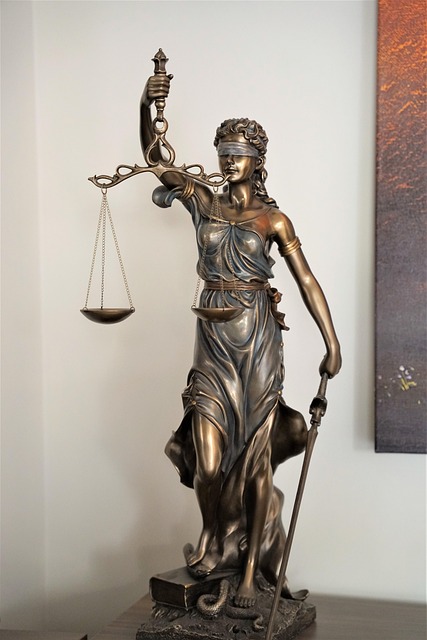In corporate crime investigations, balancing justice with fairness demands meticulous protection of defendant rights throughout all stages, especially during trial. Defense attorneys navigate complex legal landscapes to ensure due process, scrutinizing evidence and testimonies to prevent unjust convictions, particularly in white-collar cases. Meticulous evidence handling, including robust chain-of-custody protocols, maintains integrity and transparency. Ethical considerations are crucial to impartial investigations, balancing business interests with public interest while safeguarding all involved rights.
Corporate Crime Investigations: Navigating Complexities, Ensuring Justice. This comprehensive guide explores critical aspects of corporate crime investigations, focusing on protecting defendant rights during trial. We delve into balancing accusations with fair treatment, strategic legal defenses, evidence handling integrity, and ethical considerations paramount in upholding justice and due process. Learn how advocacy, meticulous record-keeping, and ethical practices are game-changers in navigating this intricate landscape.
- Balancing Accusations: Ensuring Fair Defendant Treatment
- Legal Strategies: Protecting Rights Through Advocacy
- Evidence Handling: Maintaining Integrity During Trial
- Ethical Considerations: Upholding Justice and Due Process
Balancing Accusations: Ensuring Fair Defendant Treatment

In corporate crime investigations, balancing accusations with ensuring fair defendant treatment is paramount. Protecting the rights of defendants throughout all stages of the investigative and enforcement process, from initial allegations to trial, is crucial for upholding justice. This includes providing ample opportunities for legal representation, adhering to strict evidentiary standards, and guaranteeing due process. A robust general criminal defense strategy can help mitigate damage and ensure that accused individuals receive a fair hearing.
Moreover, while white-collar defenses often involve complex financial or corporate issues, maintaining the integrity of the defendant’s rights remains non-negotiable. This requires careful navigation through intricate legal landscapes, where attorneys must challenge evidence, scrutinize allegations, and advocate for their clients’ interests. The goal is not to evade responsibility but to safeguard against wrongful accusations, ensuring that justice is served without compromising the fundamental protections afforded to all individuals facing criminal charges.
Legal Strategies: Protecting Rights Through Advocacy

In corporate crime investigations, one of the critical aspects is ensuring that legal strategies safeguard the rights of all involved, particularly the defendant. This includes protecting their due process and the right to a fair trial. Defense attorneys play a pivotal role in navigating complex legal landscapes, utilizing robust advocacy skills to challenge evidence and procedures that may be flawed or unfairly obtained. By employing strategic maneuvers, they can disrupt proceedings that could lead to unjust convictions, especially in white-collar defense cases.
A robust legal strategy focuses on upholding the defendant’s rights, even in the face of unprecedented track record evidence against them. This involves meticulous examination of facts, witness credibility, and the admissibility of evidence. Corporate and individual clients alike benefit from these advocacy measures, ensuring that their interests are protected throughout the trial process.
Evidence Handling: Maintaining Integrity During Trial

Effective corporate crime investigations demand meticulous evidence handling to ensure the integrity of the case. Protecting defendant rights during trial is a paramount concern, especially as businesses face the risk of severe consequences and reputational damage. Maintaining a robust chain of custody for all physical and digital evidence is crucial to avoiding indictment and ensuring fairness. This involves documenting each step of the investigative process, from collection to presentation in court, to safeguard against tampering or misinterpretation.
Adhering to strict protocols throughout all stages of the investigative and enforcement process is essential. This includes proper storage, handling, and labeling of evidence to prevent any alterations or contamination. By upholding these standards, investigators can ensure that the evidence accurately represents the respective business’s actions under scrutiny, facilitating a transparent and just trial outcome.
Ethical Considerations: Upholding Justice and Due Process

In corporate crime investigations, upholding justice while ensuring due process is a delicate balance that requires meticulous ethical considerations. Protecting the rights of individuals, especially defendants, is paramount at all stages of the investigative and enforcement process. This includes ensuring that suspects are treated fairly, with respect to their privacy and dignity, throughout the entire procedure.
The integrity of the justice system demands that investigations be conducted impartially, free from bias or prejudice. This means allowing both sides—including the defendant—to present their case fully, without undue interference. Respecting the respective business interests of clients while upholding the law is crucial. It involves navigating complex scenarios where financial gains and reputational considerations may conflict with legal obligations, requiring investigators to act in the public interest and protect the rights of all involved.
In the intricate landscape of corporate crime investigations, balancing accusations with protecting defendant rights during trial is paramount. Legal strategies that advocate for due process and evidence handling methods that maintain integrity ensure a just outcome. Ethical considerations underpin this process, upholding justice while navigating complex legal frameworks. By adhering to these principles, investigators can forge a path toward a fair and transparent resolution, safeguarding both corporate accountability and individual defendant rights.






